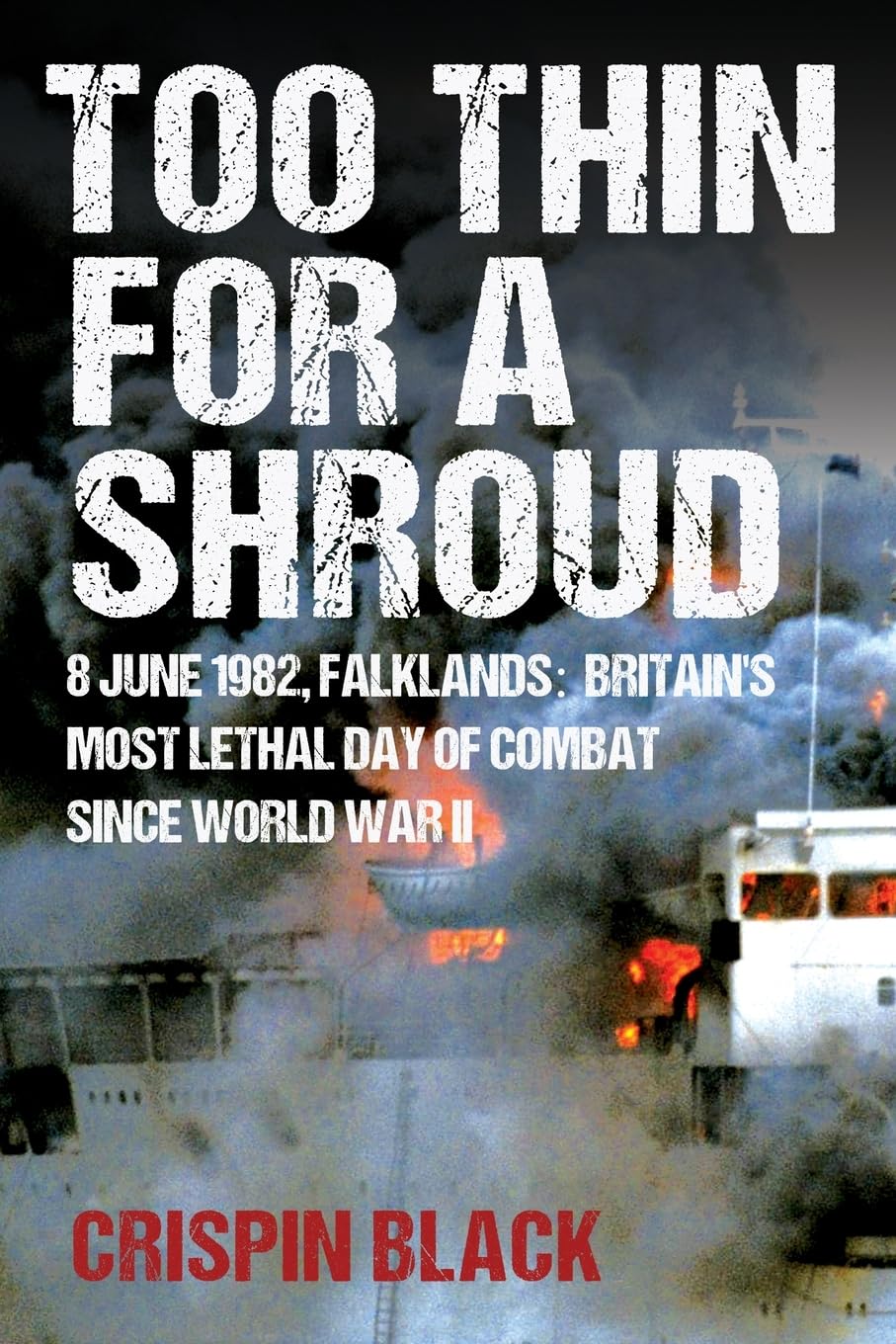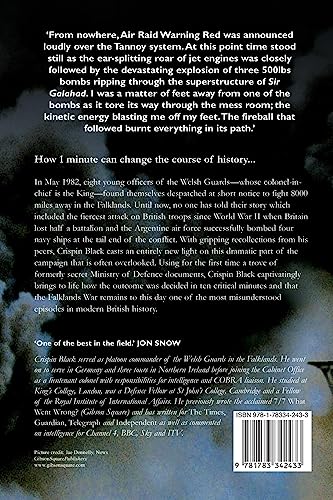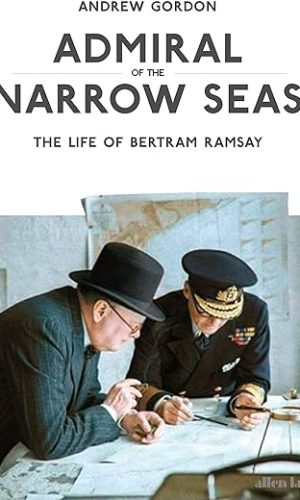Too Thin for a Shroud: 8 June 1982, Falklands: Britain’s Most Lethal Day of Combat Since World War II
£18.90
How 10 minutes can change the course of history…
In May 1982, eight young officers of the Welsh Guards-whose colonel-in-chief is the King-found themselves despatched at short notice to fight 8000 miles away in the Falklands. Until now, no one has told their story which included the fiercest attack on British troops since World War II when Britain lost half a battalion and the Argentine air force successfully bombed four navy ships at the tail end of the conflict. With gripping recollections from his peers, Crispin Black casts an entirely new light on this dramatic part of the campaign that is often overlooked. Using for the first time a trove of formerly secret Ministry of Defence documents, Crispin Black captivatingly brings to life how the outcome was decided in ten critical minutes and that the Falklands War remains to this day one of the most misunderstood episodes in modern British history.
Read more
Additional information
| Publisher | Gibson Square (2 Nov. 2023) |
|---|---|
| Language | English |
| Paperback | 192 pages |
| ISBN-10 | 1783342439 |
| ISBN-13 | 978-1783342433 |
| Dimensions | 15.6 x 1.12 x 23.39 cm |











by Stumps
Clearly, it was a cathartic exercise for the author and one cannot deny him that. However, what a pity it was that he chose to vilify the abilities, decisions and personalities of those who can no longer speak for themselves. That is not honourable. Nobody would have wished the catastrophe of 8th June on anyone. There were errors and mis-judgements. Things might easily have gone very differently but it is a plain fact of life that, in War, errors do not add up; they multiply. This was one of those occasions. The author’s perspective was unbalanced in not having placed many of these errors/misjudgements in the context of the moment. There were many errors in the text – it was page 101 before the date of the landings at San Carlos was correct! Other inaccuracies were more significant. There were lots of – not-very-well substantiated – suppositions e.g that an Army General would have done better. Perhaps it was naivety but Crispin Black failed to recognise the ACTUALITIES of this novel-and-developing situation from the outset. Who dreamt that a bit of old-fashioned ‘Gunboat Diplomacy’ would develop into a shooting war? Certainly, as a fellow-traveller, I observed that the Guards didn’t. Until very late in the day they had convinced themselves that they were destined for 6 months as ‘garrison troops’. The realisation that something rather different was unfolding was a shock. The author quoted lots of Military maxims but, oddly, he didn’t mention that “no plan survives the first encounter with the enemy.” He seemed, also, to fail to recognise the mindset which is bred by performing Public Duties i.e. that there is a fixed plan, with unshakeable timings and everything is conducted to a template. War is not like that. There is another Military maxim viz: Adapt, Improvise, Overcome. The perspective of this battalion’s fellow-travellers was that the WG found ‘adapting’ difficult, that they were not adept at ‘improvising’ and that their determination to ‘overcome’ was not as evident as the author claimed. One regrettable consequence of this book may be the resurrection of sniping at the WG. This is no place to kick off such invective. Anyway, it would be a great pity if this were to happen for the NCO’s and soldiers of the battalion were as determined as any other soldiers to uphold their fine regimental honour (and they couldn’t half sing and play rugby, too!) Sadly, to many observers, the officers came from a different century. In short, despite the “new revelations” from his research at Kew, this book is not a work of scholarship. At best it will be labelled “interesting”, at worst it will invite detailed criticism for its lack of accuracy, for its rather narrow strategic understanding of the contemporary issues and for the wholesale use of ‘reconstructed memory’, the wisdom of hindsight and the urge to blame someone/anyone for what happened on that awful, awful day at Fitzroy. Those of us who were there will never forget it.
by Johnny Strutt
Crispin Black has told the Welsh Guards story of their involvement in Operation Corporate in 1982 in Too Thin For A Shroud. Remarkably, Black has not generally provided his own opinions, but quoted from the books, podcasts, orations, etc. of senior commanders of the time and from the thus far released enquiry report into the bombing of the RFAs Sir Galahad and Sir Tristram. Black is a formidable detective with his cabinet office, COBRA and general intelligence background.
So far as the references themselves are accurate and honest, Black’s is a fact-based book and one which future historians are bound to turn to understand what actually happened.
It is hardly surprising that it has got the backs up of some senior commanders of the time, as it challenges the orthodoxy that they thought had been established.
Sir John Nott’s 1981 defence review had concluded a radical downsizing of the surface fleet and amphibians should pay for the latest nuclear upgrade. The Falklands Conflict was a god send for The Royal Navy who played a huge part in recapturing sovereign British territory to their credit, but it came at some cost to their own capital ships and their ship companies. There were further tragedies and not all exactly due to the inevitable consequences of war. No surprises here. However, the tragedy that became of The Welsh Guards and other unfortunates onboard The Sir Galahad is arguably the greatest of them all.
What Black manages to do is tell this story from a personal point of view as he was on board ship at point of attack. Sadly, he has not been able to report the full official conclusion of the establishment, as parts of the enquiry report are currently deemed sealed until 2065, including two annexes entitled Welsh Guards and offload of Galahad (61 pages), 13 pages of the Galahad Captain’s report, The Tristram off-load log and all witness statements before considering redactions. Despite all this Black gives us a very sobering understanding of how the embarked troops were let down by those who should have undertaken their command responsibilities more diligently in the worst single incident British military disaster since WW2.
It is a recent misconception that Black is anti-marine. It does not come across like that to me, but he does not let senior commanders off the hook for their shortcomings and that has been translated incorrectly in the telling.
I commend this book.